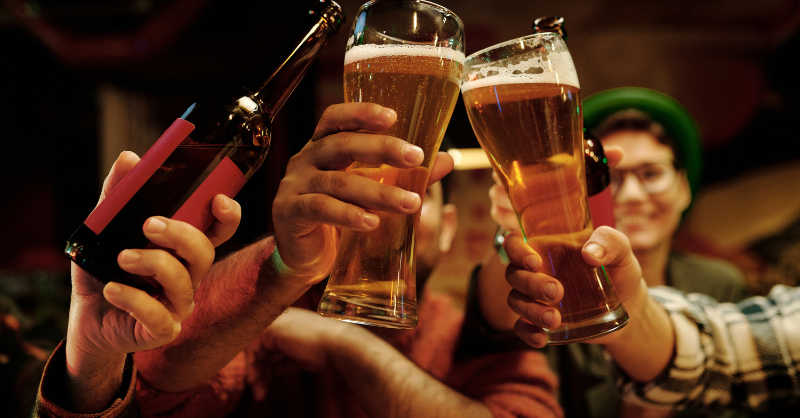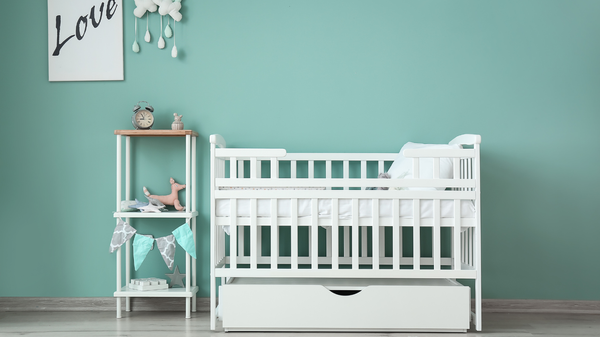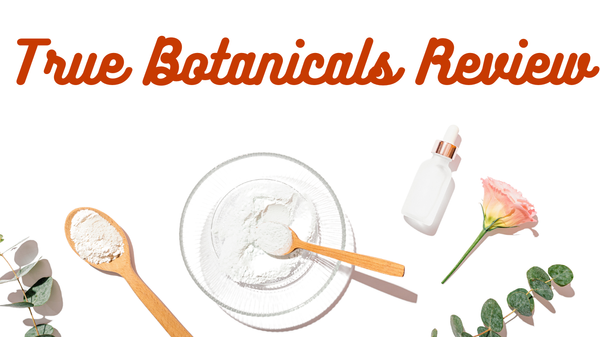Kick the Bloat: How to Get Rid of Water Retention After Drinking Alcohol
If you're dealing with water retention after alcohol consumption, there are several research-based strategies you can employ to alleviate these symptoms.

Bounce Back: Shedding Alcohol Induced Water Retention
Alcohol consumption, especially in excessive amounts, can often lead to water retention, leaving you feeling bloated and uncomfortable after a night of socializing and partying. If you've ever experienced this unpleasant side effect and yearned for a solution, then you're in the right place. Navigating through the ins and outs of how to kick the bloat and get rid of water retention after a night of alcohol consumption can feel like a daunting task, but it need not be. This guide will offer you easy-to-follow tips and strategies to help your body bounce back, ensuring you can enjoy your social events without the lingering aftermath.

What is Water Retention?
Water retention, also known as edema, is a condition where excess fluids build up inside the body's tissues, leading to swelling and bloating. It occurs when the body's lymphatic system, responsible for circulating fluid and removing waste, is interrupted or becomes inefficient. This disruption can cause fluids to become trapped in your body's tissues, leading to the symptoms associated with water retention.
Apart from alcohol consumption, there are several other factors that can contribute to water retention. These include a high salt diet, which encourages the body to hold onto excess water, and a lack of physical activity, as movement helps push fluids through the lymphatic system. Additionally, hormonal changes, certain medications, and underlying medical conditions such as kidney disease or heart failure can also induce water retention. It's crucial to understand these factors in order to effectively manage and prevent bloating and swelling.
Why Does Bloating Occur After Drinking Alcohol?
Bloating after alcohol consumption can be attributed to a series of physiological responses that occur within the body. Ethanol, the active ingredient in alcoholic beverages, acts as a diuretic, stimulating the kidneys to excrete more urine. This increased urination causes the body to lose fluids at a faster rate than usual, leading to dehydration.
Moreover, alcohol inhibits the production of the hormone vasopressin, which normally tells our kidneys to reabsorb water that would otherwise end up in our urine. With less vasopressin, our bodies produce more urine and lose more water, exacerbating the dehydration caused by the diuretic effects of alcohol.
As a response to the dehydration, the body tries to compensate for the water loss by holding onto available water, resulting in water retention and bloating. Simultaneously, alcohol can cause inflammation and irritation in the stomach and intestines, leading to an increase in digestive gases which contribute to the feeling of bloating.
Thus, the bloating after drinking is essentially a defense mechanism of the body responding to the water deficiency caused by alcohol consumption. It's an intricate interplay of dehydration, water retention, and digestive disruptions.
How Long Does Water Alcohol Retention Last?
The duration of alcohol-induced water retention can vary greatly, depending largely on the amount of alcohol consumed and individual physiological factors. In general, the body starts re-balancing its water levels as soon as the alcohol in the bloodstream begins to decrease. This process can take anywhere from a few hours to a full day, depending on the severity of the dehydration. It's important to note that continuous, heavy alcohol consumption may lead to long-lasting water retention and other health complications. To expedite the recovery process, it's recommended that individuals rehydrate by drinking plenty of water and consuming electrolyte-rich fluids or foods after consuming alcohol. This helps replenish lost fluids and assists the body in returning to its normal hydration state.
How to Alleviate Water Retention After Drinking Alcohol?
If you're dealing with water retention after alcohol consumption, there are several research-based strategies you can employ to alleviate these symptoms. Firstly, it's important to rehydrate. Drinking plenty of water can counteract the dehydrating effects of alcohol and reduce water retention ("Alcohol and health" 78).
Secondly, consuming foods rich in potassium aids in balancing out the levels of sodium in your body, which can assist in reducing bloating. Foods such as bananas, avocados, and sweet potatoes are excellent sources of potassium (Smith and Segal 95).
Thirdly, moderate exercise can stimulate circulation and help your body eliminate excess fluid buildup. But remember, exercise can also cause dehydration, so it's important to drink plenty of water before, during, and after exercise to stay well-hydrated (Aune et al. 510).
Lastly, avoiding salty foods can prevent further water retention as salt can cause the body to hold onto more water (Smith, et al. 50).
Remember that alcohol should be consumed in moderation, and if bloating and water retention persist, it may be a sign of a more serious health issue, and thus it's important to consult with a healthcare provider.
Our Top Pick
If you're looking for an effective way to stay hydrated and further reduce water retention, take a look at Sugar-Free Lemon-Lime Hydration Multiplier available on Amazon. This product leverages Cellular Transport Technology (CTT) to deliver hydration to your bloodstream quicker and more efficiently than water alone. It is free of GMOs, gluten, and dairy, making it a suitable choice for various dietary needs. With a refreshing lemon-lime flavor, it's an enjoyable way to keep your body balanced and hydrated. Try incorporating this hydration multiplier into your routine for a potentially enhanced approach to managing facial water retention.
Affiliate Disclosure: Some of the links in this article are affiliate links. This means that if you click on the link and purchase the item, we may receive an affiliate commission, at no extra cost to you. We only recommend products we believe in and all opinions expressed here are our own.
Some Other Insightful Ways to get rid of Water Retention, especially in your face
Massaging your face can be a highly effective way to reduce water retention. This technique stimulates blood flow and lymphatic drainage, two processes that help your body eliminate excess fluid. To effectively massage your face, use your fingertips to gently apply pressure in a circular motion starting from your forehead, moving down to your cheeks, and finally ending at your chin. This process can be repeated several times a day for optimal results.
Hot compresses can also assist in relieving water retention in your face. The heat helps to open up your blood vessels, allowing for easier fluid movement and subsequently reducing swelling. To make a hot compress, soak a clean towel in hot water, wring out the excess water, and then place the towel on your face for about 15 minutes. This can be done multiple times throughout the day.
In addition to these methods, dietary changes can be beneficial. Consuming foods with anti-inflammatory properties, such as berries, fatty fish, and broccoli, can help reduce puffiness and bloating. Also, avoiding caffeinated beverages and salty foods can significantly reduce water retention.
Lastly, certain facial exercises can help tone the muscles in your face, improving circulation and helping to remove excess fluid. These exercises might include puffing your cheeks and pushing the air from side to side, lifting your eyebrows and holding for five seconds, and opening your mouth wide and sticking out your tongue.
Remember, each person's body responds differently to these methods, so it's important to try different techniques to find the one that works best for you. If water retention persists, it's essential to seek medical attention as it could be a sign of an underlying health condition.
In Summation, Just Do the Right Thing
Embracing physical activities such as conditioning/running work and preventive exercises can play a significant role in alleviating symptoms of water retention. These activities help enhance blood circulation, reducing fluid buildup and promoting overall health. Furthermore, while it's perfectly alright to enjoy social gatherings, it's essential to limit alcohol consumption. Too much alcohol can lead to poisoning and exacerbate water retention. Preparing for a night out involves taking precautionary measures like consuming alcohol-absorbing foods. Whole grains, lean proteins, and foods rich in water and dietary fiber are excellent examples. These steps ensure you enjoy your social life while keeping your health in check.
Join Our Community
We hope you found this information useful. If you value what we do here and wish to stay informed, we invite you to join our growing community by subscribing to our blog. Your support helps us maintain the quality of our work and continue to provide you with the latest insights and advice on a range of health topics. By subscribing, you will receive our weekly updates directly to your inbox, allowing you to benefit from our content at your convenience. Let's work together towards achieving better health. Subscribe today and become a part of our mission!
Works Cited
"Alcohol and health." Harvard Men's Health Watch, vol. 16, no. 1, 2007, p. 78.
Smith, H. and L. Segal. Healthy Eating: A guide to the new nutrition. Harvard Health Publications, 2009.
Aune, Dagfinn, et al. "Physical activity and the risk of type 2 diabetes: a systematic review and dose–response meta-analysis." European Journal of Epidemiology, vol. 30, no. 7, 2015, pp. 529-542.
Smith, Kirsten, et al. "Effects of meals high in carbohydrate, protein, and fat on ghrelin and peptide YY secretion in prepubertal children." The Journal of Clinical Endocrinology & Metabolism, vol. 93, no. 11, 2008, pp. 4463–4471.




